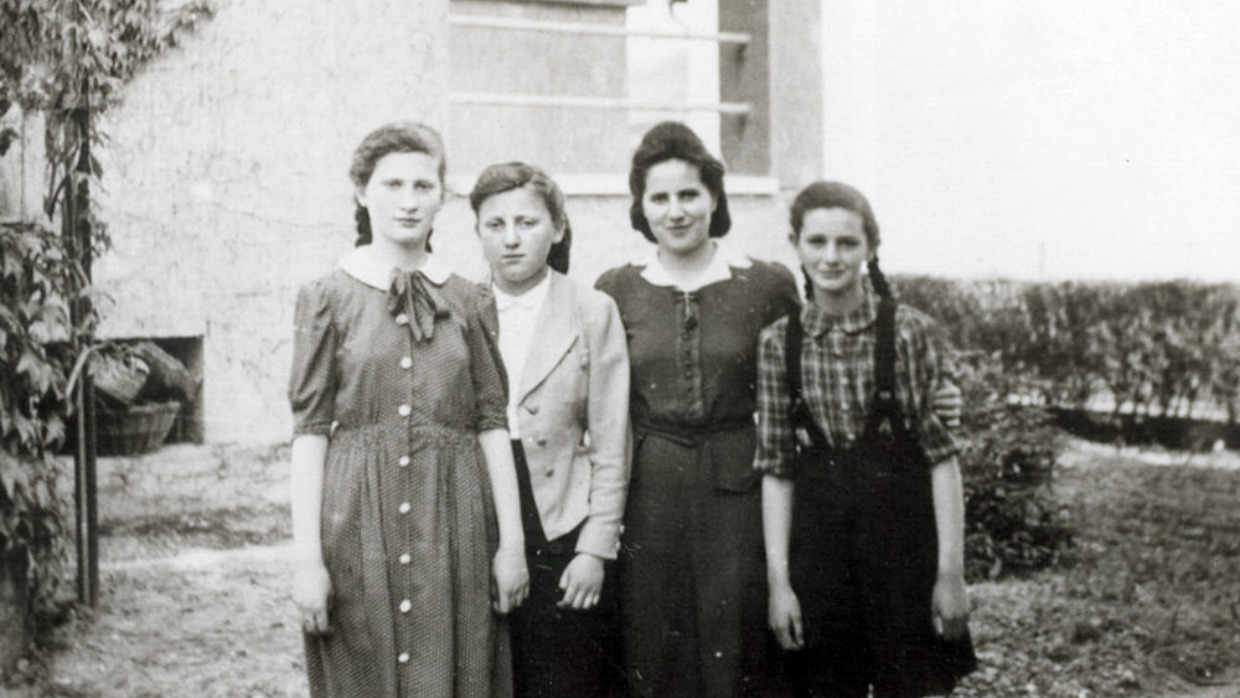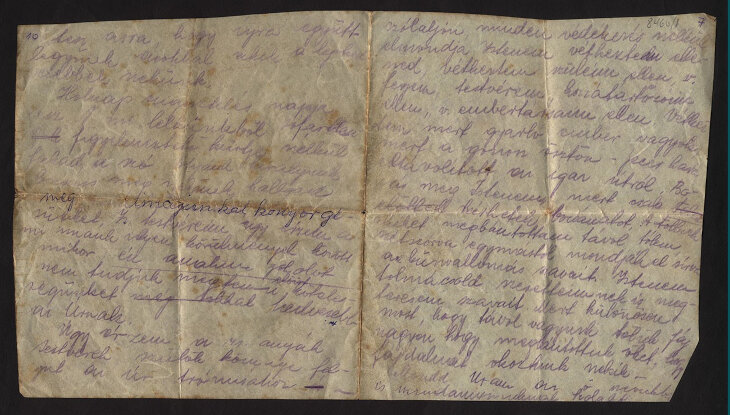 Vampire Weekend's Surprising Jewish Stories
Vampire Weekend's Surprising Jewish Stories


6 min read
In the depths of hell, Livia Koralek encouraged her fellow concentration camp prisoners.
Livia Koralek was a natural leader. Born in Hungary in 1921, Livia grew up surrounded by strong Jewish women role models. Many of the Jewish charities in her hometown of Gyor were run by women and Livia absorbed the message that women were capable of leadership, just like men.
By the time she trained as a teacher in 1940, Livia was poised to break glass ceilings. She was hired by a Jewish school in the nearby town of Csorna, which had never hired women before. The reason for this break with tradition was a tragic one: so many Jewish men had been deported to labor camps by Hungary’s fascist authorities, that women were being hired to fill jobs traditionally seen as male.
After Germany invaded Hungary in March,1944, conditions for Hungary’s Jews worsened. Livia’s school shut down and she moved back in with her parents in Gyor. Within weeks, all the Jews in Gyor and surrounding areas – thousands of people – were imprisoned in a cramped Jewish ghetto.
Holocaust survivor Zsuszanna Dallos recalled the ghetto liquidated: “We were herded…through the city center, the center of Gyor, with our yellow stars and our bundles…I remember the crowd who stood on the sidewalks. It was a hostile crowd and they cheered us. We were herded next to the railway in(to) barracks…(There) they shaved Rabbi Emil Roth’s head. They shaved shapes of (a) moon, stars… I remember that.”
One Friday night, June 9, 1944, the two community rabbis, Rabbi Emil Roth and Rabbi Ben-Zion Snyders, organized a top-secret Shabbat service in the prison where Gyor’s Jews were held, under very the noses of their Nazi jailers. Thousands of imprisoned Jews took part, praying with their fellow Jews; people of all ages, religious outlooks, and backgrounds prayed together as one. The service was eventually discovered and broken up, but Livia and the other Jews remembered it all their lives.
From Gyor, the Jews were sent to Auschwitz; no one survived. Nearly everyone Jew from the town was murdered in gas chambers as soon as they stepped off the train. But Livia was spared. She was sent to a Czech concentration camp called Parschnitz where she joined a group of 2,500 Jewish women working in local factories. Her natural leadership abilities were noticed by her fellow prisoners. When Yom Kippur came around, the prisoners asked Livia to deliver a sermon.
Livia demurred. “I didn’t want to be a leader,” she later recalled. “There was no need for it. I only wanted to give encouragement.” Eventually, Livia relented. She encouraged the women to join her in saving their meagre bread rations so they could fast. She then started speaking, encouraging her fellow-prisoners to see themselves not as passive victims but as people capable of feeling remorse and asking forgiveness:
On behalf of everyone here, I beg God’s forgiveness, for we are guilty… We have caused pain to our parents, relatives, siblings and friends. We have hurt them because we are but flesh and blood, because the evil inclination clung to us, and led us astray from the path of justice and righteousness… May this Yom Kippur be a day of pardon, forgiveness and atonement, and may God forgive us for all our iniquities…
Even in the depths of despair, Livia urged her fellow inmates that it was possible to choose to be a better person. She recalled the words of one of Gyor’s rabbis:
 Livia’s sermon, Yad Vashem
Livia’s sermon, Yad Vashem
We promise to be righteous and good. True, this is not easy as we are all sad, hungry and cold, but here in this camp, we must try and be tolerant… I remember that our brave and holy rabbi of Gyor gathered us together in the ghetto on the Friday night before his deportation to Auschwitz, and in the Sabbath eve prayers, he spoke of love, of the fact that however much is given to others, love still remains in the heart of the giver.
I remember his last sermon, given on Friday night in the camp huts to those awaiting deportation. Among other things, he said: “God is not man’s sanctuary, but rather man is God’s sanctuary. It is easy for man to retain his humanity in a beautiful home, but let us prove our humanity here in the overcrowded huts too. Here too, where we are given a 10th, a 20th, or a 25th of a tiny room, we must try to preserve our human dignity.”
Livia’s words inspired her fellow prisoners. Months later, on Passover, they tried once again to hold a service. Nazi guards broke up that gathering, but the prisoners, encouraged once again by Livia, tried to observe a Jewish holiday. Even though she was starving, Livia refrained from eating bread for all the eight days of Passover. Some of her fellow prisoners did, too.
Livia survived the Holocaust, one of the few Jews of Gyor to remain alive. Both Rabbis Emil Roth and Ben-Zion Snyders were murdered, as were all of Livia’s family.
 Some disintegrated fragments of the sermon that Livia Koralek delivered on Yom Kippur at the Parschnitz concentration camp (Yaf Vashem)
Some disintegrated fragments of the sermon that Livia Koralek delivered on Yom Kippur at the Parschnitz concentration camp (Yaf Vashem)
By the time she was freed, Livia was gravely ill. She later returned to Budapest and worked in a Jewish school where most of the students were orphans, their parents murdered in the Holocaust. Livia married the principal, Aladar-Yehuda Spiegel, and later they moved to Israel. Livia changed her name to Chana, and continued teaching and writing about experiences of Jewish children orphaned in the Holocaust.
Livia touched many people: she and Aladar had two sons and many grandchildren and great grandchildren. Perhaps no one was as touched, however, as the thousands of starving, demoralized women who worked as slaves alongside Livia in the Parschnitz concentration camp. There, her encouragement to fast and pray, even in the depths of their hopelessness, helped others feel that they too could connect with the Divine.
Click here to read the full text of Livia Koralek’s Yom Kippur 1944 sermon.

Inspiring, the Holocaust should never be forgotten! Evil is everywhere, same
as Grace and Courage. Thank you for sharing such stories, men, women and children that suffered the unimaginable yet their lives still echoes in our time with their sacrifices.
A well-written and evocative piece from an author whose articles I've appreciated before. Each time I read of a person's experiences during that incredibly dark and savage period in history, it's as if it's the first. Each account stirs deep emotional reaction, reflection and wonder. The impact never lessens.
Victory from defeat!
An inspiration!
Please consider compiling your writings into a sefer, so that we may easily share them with others. Thank you for this exceptional piece. Steven Finer
If we don't support each other, we will be no more. Not just our humanity but our nation. Ha Tikva.
Thank you so much for this important piece!
Oh, that I will be that strong when confronted with the evil she saw.
heartwrenching and inspiring article. Thank you.